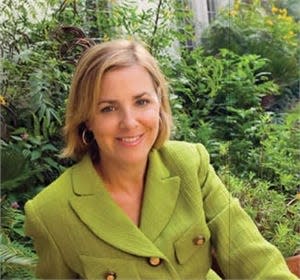Private landowners must help save Florida's Wildlife Corridor | Opinion
- Oops!Something went wrong.Please try again later.
The rush is on to save the Florida Wildlife Corridor — a ribbon of land and water that runs the length and breadth of Florida. It’s supposed to set aside some space for Florida’s non-human 99% to survive once the state is completely paved over. In 2021, the Florida legislature unanimously agreed to put the corridor into statute and Gov. Ron DeSantis signed it into law.
The Florida Wildlife Corridor is a gold rush too. Florida is spending billions to put conservation easements over corridor lands and also buy corridor land outright. There is not a moment to lose.
Let’s be blunt — Florida is on autopilot to pave over the entire state. It has been for a long time, at least a hundred years. During the past century, Florida has been organized politically, legally, economically, and socially around the goal of converting wildland into money. It is a Florida truth universally acknowledged that every scrap of land (wetlands too) is always on the table for development. No government could/would/should “just say NO.” This socio-economic model implemented and sustained by what I like to call “government of, by and for the developer,” has been fabulously successful, at least from the perspective of real estate development and profit seeking.
More: Conservation easements don't always protect land 'forever' in Florida
More: SOS for Florida's wetlands: Time is running out for government action | Opinion
The Florida Wildlife Corridor signals official confirmation that the State of Florida will be entirely paved over, and nothing can/will/should stop it but buying land and development rights to ensure conservation.
I commend the Florida Legislature and DeSantis for their commitment to the Wildlife Corridor. But guess what? The Florida Wildlife Corridor Act isn’t enough to save Florida’s biodiversity, even if 100% of the proposed corridor is saved, not paved.
The reality is that there is simply not enough public land to adequately protect biodiversity. Private landowners must be part of the solution. And why not? Why do we think it is the exclusive “job” of government to save Nature? Government has so many “jobs”— and conservation is just one more “problem” to be addressed. Wildlife, habitat protection and pollution remediation typically get the short end of the stick in government budgets.
Famed ecologist Douglas Tallamy, founder of Homegrown National Park, is leading a cultural/social/political shift to encourage each of us to help protect and restore biodiversity, in recognition that government can’t do it alone: “Our National Parks, no matter how grand in scale are too small and separated from one another to preserve species to the levels needed. Thus, the concept for Homegrown National Park, a bottom-up call-to-action to restore habitat where we live and work, and to a lesser extent where we farm and graze, extending national parks to our yards and communities.”
After a lifetime of sadly watching Florida get paved over one land use deal at a time, and nearly 40 years as an attorney, I fully realize that culture comes first — law, politics and economics follow culture. A strong culture of individual and social commitment to biodiversity would manifest itself in so many wild and wonderful ways: rewilding our private spaces and protection of our public lands.

We wouldn’t see entire forests scraped barren of every living thing and replaced with pavement. We wouldn’t think of Nature as something “over there, at the park.” We would recognize, celebrate and practice conservation at home. Our local and state laws would reflect a sincere commitment to ecological protection and actually ensure that protection. And we might finally get a handle on the machine that is hell bent on paving over everything: government of, by and for the developer.
Lesley Blackner is a Florida attorney. Her legal interests include wildlife protection, sustainability, population growth and immigration.
This article originally appeared on Florida Today: Wildlife Corridor Act is not enough to save Florida's biodiversity
